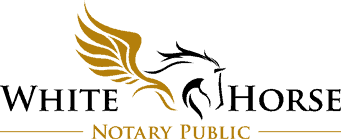Identification Requirements
Following the implementation of the Money Laundering Regulations 2003, notaries are now obliged to keep sufficient evidence on their files of the identity and the address of all their clients before they undertake any services.
Each person whose signature they are to certify must provide one of the following original identification documents at the time of the appointment.
- passport
- driving licence (with photo card)
- national identity card (EEA state members)
- an armed forces pass (with photo and signature)
- firearms licence (with photo and signature)
- other government issue ID (with photo and signature)
- residence permit
- benefit book or original notification letter from Benefits Agency
If you do not have the above documents, you will have to ask the notary to advise you on how best to prove who you are.
In addition, they require proof of residence, which can be one of the following original documents:
- Bank statement or letter from bank
- Utility bill or council tax bill (not mobile phone bill)
- Tenancy agreement or Housing Association rent card
- Inland revenue tax demand or self-assessment statement
For corporate/business clients, notaries will (in addition to checking your personal identity) now need to establish that the company or organisation which you represent actually exists and in many cases that you are authorised to represent that company or organisation. In the case of companies or organisations based in the United Kingdom, the notary will generally conduct his own checks to satisfy himself that the company or organisation exists. In some cases (particularly for companies or organisations established overseas) he may ask you to produce certain documents. These might include:
- Certificate of incorporation
- Extract from the company register
- Certificate of Good Standing
- Latest report and audited accounts
- Up to date certified copy of partnership agreement
- Evidence of being regulated by a regulatory body such as the Law Society or FSA.
If the notary has to certify your authority to represent a company or organisation, additional documentation will be requested, for example:-
- Constitutional documents (e.g. memorandum and articles of association)
- Power of Attorney
- Chamber of Commerce certificate
- Board Resolutions
- Authorised signatory book (in the case of banks)
Your notary will be happy to advise exactly what will be required in any particular case.
Additional information may be required when we are acting for business clients. This is to ensure that a company check can be performed.
White Horse Solicitors & Notary Public
96 White Horse Lane
London E1 4LR
Parking
Private Car Park Bays for clients at the rear of our Office
Bus
The 25, 309 and 205 buses run closest to our Office
Nearest Tube Station:
Stepney Green Underground tube station – (District Line) – (1 minute walk to our Office)
Mile End and Whitechapel Underground Tube Station – (Central Line) – (7 – 10 minutes walk to our Office)
OUR REVIEWS
FAQ’S
A Notary Public (also referred to as a ‘Public Notary’ or simply as a ‘Notary’ is a public officer & is a specialist lawyer authorised to witness, authenticate or certify documents for use in countries around the world. Solicitors & Barristers in the UK owe a duty of care towards their clients. In contrast a Notary Public owes a duty of care to the document he is notarising.
The short answer is yes. In certain instances it may be necessary to change a lettered translation of the document into English. Our Notary Public can advise you on whether this is required – If this is required the Notary can assist with obtaining a certified translation. If you do require notarisation of a document which is in a foreign language, please do contact our Notary Public & he will be happy to explain any specific requirements.
We provide notarial services to both our individual & business clients. We have years of experience in accommodating the needs of both of our individual & corporate institutions. Please visit our pages for ‘Services for Individuals’ & ‘Services for Businesses’ for more details.
An Apostille is a certificate issued by the foreign or commonwealth office in the UK & is the authentication of a document for use in another country.
The Apostille certificate confirms the signature, seal & stamp of the Notary Public to be genuine so that it is accepted when presented in another country outside the UK. The Apostille assures that any documents fraudulently ‘notarised’, purporting to be a Notary Public is not recognised & therefore reduces the risk of fraudulent documents being circulated around the world.
If the document being notarised is to be received by a country that is a signatory to the Apostille convention of 1961 – it is likely that you will require an Apostille. The purpose of the Hague Apostille Convention of 1961 is that once the country becomes a member/signatory there should no longer be any requirement for separate consular or embassy legalisation as long as the document has been notarised and apostilled. Our Notary Public will be happy to advise you on whether the recipient of the document will require an Apostille. If an Apostille is required, our Notary Public can advise you on the process of obtaining one, the cost & can arrange this for you.
We cater for all your urgent notarial needs & have a robust system in place to cater for your urgent needs. Unfortunately- the UK government have ceased the same day apostille service in London (save some limited types of documents). Our in-house courier will ensure that if required with an additional fee, the Apostille is obtained next day & country specific consular or embassy legalisation is obtained the following day if this is applicable.
If we are required to notarise documents to confirm they are authentic- remote or online electronic notarisation is possible on certain documents. At White Horse Notary Public, we have successfully carried out digital notarisations using the internationally recognised eIDAS Regulation standard “Qualified Electronic Signature” for use overseas and will continue to advise clients on the best course of action in this area. The resulting “qualified electronic signature” is recognised as having the same legal effect as a handwritten wet-ink signature.
Although many countries have become members/signatures to The Hague Apostille convention of 1961 – there still remains many countries around the world that are not signatures/members of the convention. This means that if your document is being received in a country who is not a signature/member is it likely that further legalisation of the document will be required by the consular or embassy of the receiving country.
Our Notary Public has comprehensive knowledge of the legalisation requirements for all the countries around the world & will be happy to advise you accordingly in relation to your specific requirements.
To comply with money laundering regulations, a Notary Public must confirm your identity. Our Notary Public would expect you to bring with you your current unexpired passport or your full photo card driver’s license as a proof of identification. You will also be expected to produce proof of residency which is no more than 3 months old – this can be by way of bank statement or utility bill issued to you.
For more information on specific identification requirements please check our ‘Identification’ page
The cost will depend on the number of documents you require notarising. Our charge for notarising one document is £50. We do not charge VAT & there are no hidden charges. If you require an Apostille, consular or Embassy legalisation, the cost will depend on the number of documents & how quickly you require the documents to be apostilled &/or legalised.
Our Notary Public offers home or office visits & out of hours service (including weekends) by prior appointment. This service will incur on additional charge. Please do let us know if you require our out of hours/office service.









